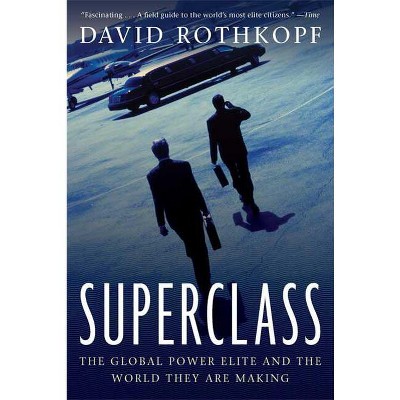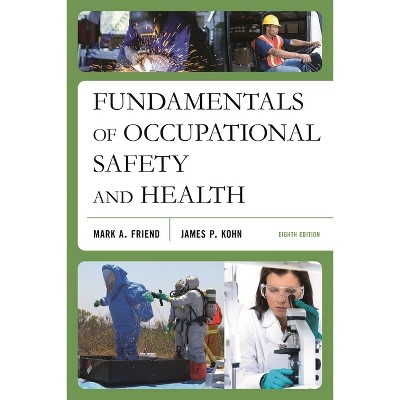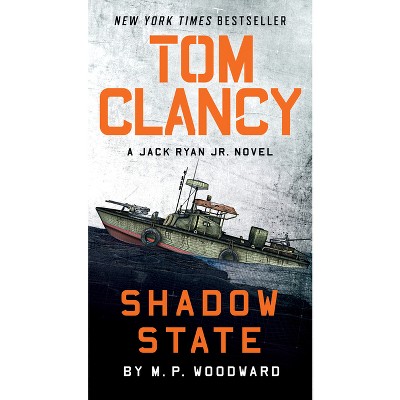Sponsored

The Filth of Progress - by Ryan Dearinger
$29.99
In Stock
Eligible for registries and wish lists
Sponsored
About this item
Highlights
- The Filth of Progress explores the untold side of a well-known American story.
- About the Author: Ryan Dearinger is Associate Professor of History at Eastern Oregon University.
- 284 Pages
- Political Science, Labor & Industrial Relations
Description
About the Book
"In America's historical imagination, toil and triumph against nature and overwhelming odds characterizes such achievements as the Erie Canal and the transcontinental railroad. Triumph transformed canal and railroad entrepreneurs into visionaries whose work brought the nation bountiful riches and did the Lord's bidding. Celebrated for their spirit and perseverance in 'building' the nation's infrastructure, they found respect for looking to tomorrow and creating a future. For generations, most indexes of American history supported and reinforced this narrative of progress. Yet, if this is the historical memory, it is conveniently stunted. What of those whose bodies strained and broke under the load of such glories? What of those men beyond the din and fanfare who only appear in old photographs with faces blurred and indistinguishable? In their lives and deaths in the mud, muck, and mountains is another history of American achievement. These barely visible and forgotten, ordinary men, 'unskilled' immigrants from Ireland and China, Mormons, and native-born American workingmen rank, as well, as the creators of national growth and progress. Their experiences and voices, along with those of the privileged and well-connected, are the subjects of this study. I examine the rise of Western canals and railroads to national prominence through the menial labor of countless men, largely hidden from view because they left virtually no paper trail, who strung together livelihoods at the economic fringes of society. This book examines the contest for control of American progress and history as distilled from the competing narratives of canal and railroad construction workers and those fortunate enough to avoid this fate"--Provided by publisher.Book Synopsis
The Filth of Progress explores the untold side of a well-known American story. For more than a century, accounts of progress in the West foregrounded the technological feats performed while canals and railroads were built and lionized the capitalists who financed the projects. This book salvages stories often omitted from the triumphant narrative of progress by focusing on the suffering and survival of the workers who were treated as outsiders. Ryan Dearinger examines the moving frontiers of canal and railroad construction workers in the tumultuous years of American expansion, from the completion of the Erie Canal in 1825 to the joining of the Central Pacific and Union Pacific railroads in 1869. He tells the story of the immigrants and Americans--the Irish, Chinese, Mormons, and native-born citizens--whose labor created the West's infrastructure and turned the nation's dreams of a continental empire into a reality. Dearinger reveals that canals and railroads were not static monuments to progress but moving spaces of conflict and contestation.From the Back Cover
"The Filth of Progress persuasively outlines the dark underbelly of the much-celebrated 'progress' that transportation improvements wrought between the 1820s and 1870s. Dearinger skillfully brings together the histories of Irish immigrants, Mormons, and Chinese workers. This compact, vividly written book will be of benefit to students and scholars of U.S. labor history, U.S. immigration history, and the history of the American West."--Thomas G. Andrews, Associate Professor of History at the University of Colorado and author of Killing for Coal: America's Deadliest Labor War and Coyote Valley: Deep History in the High Rockies "The Filth of Progress unmasks the strangely neglected work and self-advocacy of immigrant and Mormon transportation workers in the building of the American West. Dearinger's clear and polished prose reveals the commonalties and differences in how diverse workers tried to better their lives and conditions. This book will appeal to western historians, cultural historians of nineteenth-century American 'improvement' and 'progress, ' labor historians, and historians of immigration."--Katherine Benton-Cohen, Associate Professor of History at Georgetown University and author of Borderline Americans: Racial Division and Labor War in the Arizona Borderlands "Just twenty years ago Peter Way introduced American historians to the harrowing lives of the 'navvies' working on New York's Erie Canal. Now Ryan Dearinger offers a rich, new, up-to-date study of the hard-working armies of laborers who dug the canals and spiked the rails that eventually knit together a transcontinental United States. The Filth of Progress deftly links the cultural enthusiasm for technology and development with the enormous suffering wrung from the hands and backs of thousands of marginalized persons from the opening of the Erie through the celebratory Golden Spike nearly half a century later. Irish immigrants, Mormons, and contract Chinese laborers--each group held in some degree of contempt by 'free' and 'white' Americans--greased the skids of progress with their sweat and blood. Familiar racial and ethnic hostilities, rank exploitation, and shameless manipulations ornament the story; but lest we forgive the principles for the 'standards of the day, ' Dearinger displays one after another the outrageous fictions concocted to fix blame on the victims after the fact. Americans not only did not build their greatest achievement themselves, they lied aggressively to rob those who did of any scrap of credit or dignity. Not an uplifting story, Dearinger's account helps to balance scales too long tipped in the direction of bloodless triumph and Yankee ingenuity. Read 'em, and weep."--John Lauritz Larson, Professor of History at Purdue University and author of The Market Revolution in America: Liberty, Ambition, and the Eclipse of the Common GoodReview Quotes
"The Filth of Progress joins books such as Peter Way's Common Labour (1993) in reclaiming the lives of unskilled common laborers. . . . Dearinger has produced a thoughtful and thought-provoking book that complements critical revisionist histories of nineteenth-century American development."-- "Journal of American History"
"The Filth of Progress offers important directives for Gilded Age historians. It urges us to remember who built the infrastructure that defined the Gilded Age. It asks us to consider the legacies of their work in the last decades of the nineteenth century. It reminds us that creating the idea of progress was also laborious. And, in suggesting just how much Gilded Age ideas about nation, citizenship, masculinity, and work were shaped by omitting Irish, Mormon, and Chinese workers, it reminds us of the power and perils of forgetting."-- "Journal of the Gilded Age & Progressive Era"
"The Filth of Progress... [gives] voice to those absent from the official records: here Dearinger's work triumphs and becomes a fascinating study of a tumultuous period of American history and the formation of American identity."-- "Journal of American Culture"
"An important contribution to American history and should have an exceptionally profound effect on our understandings of western history and the "transportation frontier" in particular."-- "Montana: The Magazine of Western History"
"Dearinger builds upon the work of scholars such as Gunther Peck and Andrew Urban to reincorporate waged work, reframed in Western and global historiographical turns, within the newer history of capitalism that has tended to emphasize the importance of slavery, commodification, and finance. The Filth of Progress deserves a wide readership."-- "American Historical Review"
"Dearinger has added a thoughtful and well-researched contribution to this genre of scholarship."-- "Labour/Le Travail"
"Dearinger illustrates how class, ethnicity, and gender intersected in workers' quests to reorient their personal -- and, perhaps, the nation's -- destiny."-- "Labor: Studies in Working-Class History of the Americas"
"Despite navigating such huge geographical and cultural boundaries, The Filth of Progress is able to present a coherent history, which hardly veers off the main tracks of its arguments... an instant classic." -- "Oregon Historical Quarterly"
"The Filth of Progress provides fresh insight into the United States' 19th-century infrastrastructure projects by illuminating their 'dark underbelly' . . . . Dearinger's success and originality lie in his comparative framework, which examines how Irish, Chinese, and Mormon and other native-born workers struggled for identity. . . . An excellent analysis."-- "Pacific Northwest Quarterly"
About the Author
Ryan Dearinger is Associate Professor of History at Eastern Oregon University.Dimensions (Overall): 8.9 Inches (H) x 5.9 Inches (W) x .8 Inches (D)
Weight: .95 Pounds
Suggested Age: 22 Years and Up
Number of Pages: 284
Genre: Political Science
Sub-Genre: Labor & Industrial Relations
Publisher: University of California Press
Format: Paperback
Author: Ryan Dearinger
Language: English
Street Date: October 30, 2015
TCIN: 1002212708
UPC: 9780520284609
Item Number (DPCI): 247-28-5507
Origin: Made in the USA or Imported
If the item details aren’t accurate or complete, we want to know about it.
Shipping details
Estimated ship dimensions: 0.8 inches length x 5.9 inches width x 8.9 inches height
Estimated ship weight: 0.95 pounds
We regret that this item cannot be shipped to PO Boxes.
This item cannot be shipped to the following locations: American Samoa (see also separate entry under AS), Guam (see also separate entry under GU), Northern Mariana Islands, Puerto Rico (see also separate entry under PR), United States Minor Outlying Islands, Virgin Islands, U.S., APO/FPO
Return details
This item can be returned to any Target store or Target.com.
This item must be returned within 90 days of the date it was purchased in store, shipped, delivered by a Shipt shopper, or made ready for pickup.
See the return policy for complete information.
Frequently bought together
Trending Non-Fiction

















